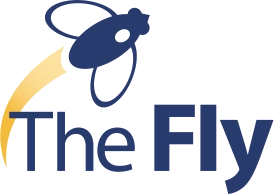

Institutional investors and professional traders rely on The Fly to keep up-to-the-second on breaking news in the electric vehicle and clean energy space, as well as which stocks in these sectors that the best analysts on Wall Street are saying to buy and sell.
From the hotly-debated high-flier Tesla, Wall Street's newest darling Rivian, traditional-stalwarts turned EV-upstarts GM and Ford to the numerous SPAC-deal makers that have come public in this red-hot space, The Fly has you covered with "Charged," a weekly recap of the top stories and expert calls in the sector.
Q2 DELIVERIES: Over the weekend, Tesla (TSLA) reported second quarter deliveries of 254,695, with 4% subject to operating lease accounting, and production of 258,580 vehicles. Tesla delivered 16,162 Model S/X and 238,533 Model 3/Y. The company said, "In the second quarter, we produced over 258,000 vehicles and delivered over 254,000 vehicles, despite ongoing supply chain challenges and factory shutdowns beyond our control. June 2022 was the highest vehicle production month in Tesla's history."
SOFTWARE GLITCH: Germany's road traffic agency said it was recalling Tesla models Y and 3 because of a fault in the automatic emergency call system that affects 59,000 vehicles globally, according to Reuters. The KBA watchdog said on its website dated June 29 that a software flaw was causing a breakdown of the eCall, which is designed to automatically contact emergency responders in the event of a serious accident.
JUNE DELIVERIES: XPeng (XPEV) announced on Friday its vehicle delivery results for June and the second quarter 2022. XPeng recorded monthly deliveries in June of 15,295 Smart EVs, representing a 133% increase year-over-year, and a 51% increase over May. The company delivered 34,422 Smart EVs in total for the second quarter, ranking first among emerging auto brands in China for the fourth consecutive quarter. As of June 30, year-to-date total deliveries reached 68,983 units, representing a 124% increase year-over-year, the highest among emerging automakers in China. Beginning in mid-May, XPeng accelerated deliveries with resumed double-shift production at its Zhaoqing plant and notably, in June, the company reached the milestone of 200,000 cumulative deliveries. June deliveries consisted of 8,045 P7s, the company's smart sports sedan, 5,598 P5 smart family sedans and 1,652 G3i and G3 smart compact SUVs. In August, XPeng plans to begin accepting pre-orders for its new, flagship G9 SUV followed by an official launch in September. The company also plans to release its new City Navigation Guided Pilot after obtaining relevant approvals.
Meanwhile, Li Auto (LI) announced that the company delivered 13,024 Li ONEs in June, up 68.9% year over year. This brought the company's second quarter deliveries to 28,687, representing a 63.2% year-over-year increase. The cumulative deliveries of Li ONE have reached 184,491 since the vehicle's market debut in 2019. The company officially unveiled Li L9 on June 21, the smart SUV for families. Li L9 is a six-seat, full-size SUV.
NIO (NIO) also said it delivered 12,961 vehicles in June, representing a strong increase of 60.3% year-over-year. The deliveries consisted of 8,612 premium smart electric SUVs, including 1,684 ES8s, 5,100 ES6s and 1,828 EC6s, and 4,349 ET7s, the company's flagship premium smart electric sedan. NIO delivered 25,059 vehicles in the second quarter, increasing by 14.4% year-over-year. Cumulative deliveries of NIO vehicles reached 217,897 as of June 30. The company expects to start deliveries of the ES7 and the 2022 ES8, ES6 and EC6 in August.
SHORT REPORTS: Short-selling firm Grizzly Research has published a report on NIO, in which it accuses the company of "an audacious scheme" reminiscent of the Philidor-Valeant relationship, alleging that Nio is "likely using an unconsolidated related party to exaggerate revenue and profitability." The firm claims its investigation has found "Weineng might be to NIO what Philidor was to Valeant. Just as Philidor aided Valeant in habitually making numbers, NIO has curiously exceeded estimates since establishing Weineng. We believe sales to Weineng have inflated NIO's revenue and net income by ~10% and 95%, respectively. Specifically, we find that at least 60% of its FY2021 earnings beat seems attributable to Weineng." Grizzly adds in its report: "Chinese government entities have redeemed US$2B from NIO and may collect another US$6.7B. With NIO's cash balance of just US$8.2B. We believe shareholders risk being materially diluted in future periods."
In a statement in response to allegations made in a report by Grizzly Research, NIO said that, "The report is without merit and contains numerous errors, unsupported speculations and misleading conclusions and interpretations regarding information relating to the Company. The Company's board of directors, including the audit committee, is reviewing the allegations and considering the appropriate course of action to protect the interests of all shareholders. The Company will make additional disclosures in due course consistent with the requirements of applicable rules and regulations of the Securities and Exchange Commission, the New York Stock Exchange, The Stock Exchange of Hong Kong Limited and the Singapore Exchange Securities Trading Limited. The Company emphasizes its continued and unwavering commitment to maintaining high standards of corporate governance and internal control, as well as transparent and timely disclosure in compliance with applicable rules and regulations."
Meanwhile, Fuzzy Panda Research said in a new short report published on its website that EVgo (EVGO) was "a mediocre EV charging company that we believe is substantially overvalued." "Not only are a significant number of their EV chargers are broken, but they also have triple digit negative operating profit margins which have gotten even worse," the short-selling firm contends. In the report, the firm added, "The founder's lock-up expires this weekend on July 2, 2022. Greater than 76% of shares will be available to be sold by founders & LS Power. Could the EVGO's investment story be any worse? We discovered that EVGO's controlling shareholder, LS Power, is connected to Jeffrey Epstein, the infamous and now deceased pedophile. We uncovered this connection to Jeffrey Epstein with LS Power's 'affiliate fund' Luminus Management and LS Power's current CEO. Luminus Management is run by Jeffrey Epstein's protege Jonathan Barrett."
Commenting on the report, EVgo told The Fly that, "The report is filled with numerous inaccuracies, mischaracterizations, and outright lies. We look forward to discussing with investors directly."
SOLAR STOCKS UNDER PRESSURE: Several solar stocks are under pressure on Wednesday after Roth Capital analyst Philip Shen said that the U.S. Customs and Border Protection detained products from a major solar company and required documentation to detail the source of quartzite, a raw material in the company’s supply chain. The analyst believes this could be “a major problem” for the U.S. solar industry as his checks suggest none of the module vendors have quartzite documentation.
He sees this as “an incremental negative” for the U.S. solar industry, especially the utility scale segment, including Array Technologies (ARRY), Canadian Solar (CSIQ), JinkoSolar (JKS), FTC Solar (FTCI), Maxeon Solar (MAXN), Shoals (SHLS) and ReneSola (SOL). While he had upgraded Array and FTC Solar recently on the AntiCirc relief, Shen also did highlight UFLPA enforcement as a risk, and this risk may outweigh the AntiCirc relief. The residential solar names - such as Sunnova (NOVA), Sunrun (RUN), SunPower (SPWR), Sunlight Financial (SUNL), Enphase (ENPH), SolarEdge (SEDG) and Generac (GNRC) - may end up being challenged by this as well, said Shen.
SHORT-TERM CASH BURN: Nomura analyst Martin Heung downgraded XPeng to Neutral from Buy with a price target of $36.30, down from $64.60. The analyst believes the company can't avoid burning cash flow in a the short term. Making hardware package a standard feature and waiving software upgrade fees may help to accelerate penetration of XPeng's advanced driver-assistance system technology, but the downside is that the strategy delays any short-term hopes of software monetization, Heung told investors in a research note.
BUY LION ELECTRIC: DA Davidson analyst Michael Shlisky initiated coverage of Lion Electric (LEV) with a Buy rating and $7.00 price target. The analyst stated that the company is setting itself up well by focusing on obtaining scale via the early-to-electrify school-bus category. Just reaching the annual volume of 22.5K units per year - Lion Electric's currently constructed capacity - would make it a solid take-out candidate, Shlisky told investors in a research note.
SELL SUNPOWER: Wells Fargo analyst Michael Blum initiated coverage of SunPower with an Underweight rating and $17 price target. SunPower's business is mostly direct sales, which the analyst views as more sensitive to the economic environment given the large upfront cost of purchasing a solar rooftop system. The slowdown in the housing market is also likely to affect new solar sales, he added.
ON THE SIDELINES: Wells Fargo analyst Michael Blum initiated coverage of Sunnova Energy and Sunrun with Equal Weight ratings and price targets of $22 and $27, respectively. Sunrun and Sunnova employ mostly lease/PPA and loans for its business model, which the analyst prefers as this creates a long-term recurring revenue stream. However, near-term headwinds, most notably rising interest rates, keep him on the sidelines.
